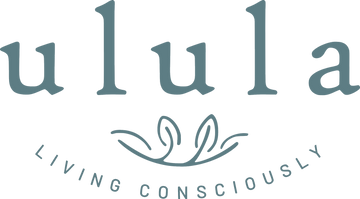Holle & Palm Oil
Sustainable and socially responsible production of Holle organic palm oil
According to a study conducted by the WWF, palm oil produces the highest yields per unit area compared to all other oils. Palm oil production per se is therefore the most ecological oil production in the world. Unfortunately, though, most of the palm oil used worldwide is not produced in a sustainable manner. Especially in countries such as Indonesia and Malaysia, vast expanses of rainforests have been cut down for short-term profits, driving many endangered species from their natural habitat. This clearly justifies the bad reputation of such conventionally produced palm oil.
Conventional palm oil comes mainly from Indonesia and Malaysia where tropical rainforest is destroyed for oil palms and orangutangs lose their lives and their homes.
For our Holle products, we ONLY use organic palm oil from sustainable cultivation, produced by the Daabon Group in Colombia. Palm trees need so much less land to grow than Coconut, Sunflower or Rapeseed, so equivilent yields can be achieved with much smaller land use.
In their organic palm oil production, Daabon consider various social and environmental aspects:
- The people working on-site receive fair and adequate payment and appropriate social benefits.
- The oil palms are grown in permaculture systems.
- No pesticides are used.
- Daabon regularly receives very good ratings in evaluations by the WWF.
- For the cultivation of organic oil palms, slash-and-burn or other forms of clearing primary forests are not allowed.
- Holle palm oil is RSPO-certified. RSPO, the Roundtable on Sustainable Palm Oil, is led by the WWF and defines the criteria for sustainable palm oil production.
- The farmers are small family units, especially women who are able to use the work to support their families.
- The smaller farms are mixed crops, which save the soil, support fertilising the land and improve the soil's cultivation conditions.
Above you can find a video by the WWF showing the sustainable cultivation of RSPO-certified palm oil used by producers such as Holle baby food GmbH.
Palm oil is an integral part of Holle Infant Formula
As a manufacturer of biodynamic baby food and one of the oldest producers of Demeter-certified goods, we are aware of our social and environmental responsibilities.
Babies have very special physiological needs. In order to satisfy their specific nutritional requirements and ensure their healthy development, particularly in the first year, infant formulas must contain a high proportion of saturated fats. Their composition is supposed to resemble that of breast milk, which contains 51% of saturated fatty acids.
Infant formula is generally made up of a specific mix of various vegetable oils. Palm oil, which is derived from the pulp of the fruit of the oil palms, is an integral and important part of Holle infant formula products.
Most vegetable oils consist primarily of monounsaturated or polyunsaturated fatty acids. Only few vegetable oils contain enough saturated fatty acids to meet the requirements for infant formula. Among such oils, palm oil clearly stands out, as all others contain various adverse components. Palm oil is very well suited to replace palmitic acid found in breast milk.
For this reason, palm oil is one of the essential components (alongside rapeseed oil and sunflower seed oil) of the fat mixture we use for our Holle Infant Formula.
It is not advisable to replace palm oil with coconut oil, since the fatty acid pattern of coconut oil contains too high proportions of lauric acid and myristic acid. Another disadvantage is its increased foam production, which may increase gas production and upset the baby's stomach.
Palm oil, however, is very well tolerated mainly because breast milk itself contains palmitic acid. Domestic vegetable oils, including rapeseed oil and sunflower seed oil, predominantly contain unsaturated fatty acids and are therefore not suited as the sole ingredient for infant formula.
Holle Infant Formula rated €˜very good' regarding MCPD and GE contents
Vegetable fats and oils need to be refined in order to extend their shelf life. The refining process also makes the oil edible, while adverse components are filtered out. It can, however, also create other unwanted substances (such as MCPD). This affects not just palm oil, but all vegetable oils.
We use state-of-the-art technology for our refining processes. As part of our continuous improvement process, we do our best to reduce such unwanted substances to a minimum. In the past years, we have made considerable progress in optimizing our refining processes. Today, we are able to produce batches of fat in which hardly any unwanted substances are found.
In February 2018, the European Commission published maximum levels for glycidyl fatty acid esters in vegetable oils.
Our Holle Infant Formulas based on cow's milk and goat's milk were tested for glycidyl and MCPD and were rated €˜very good'.
At Holle, every single batch of fat undergoes testing during the production. 95% of all analyses show values of 3-MCPD < 0.1 mg/kg fat. The remaining 5% are < 0,2 mg/kg fat.
Only from > 0.24 mg/kg fat we would have reached the former TDI (Tolerable Daily Intake) of 0.8 mg/kg body weight. The current TDI (according to EFSA) is even higher with 2 mg/kg body weight. That means a maximum of 0.6 mg 3-MCPD/kg fat.
For glycidol (GE contents), the legal threshold values apply. All measured values here are equally low, and all legal requirements are met.
Please find the Regulation (EC) Nr. 1881/2006 in full text here.

